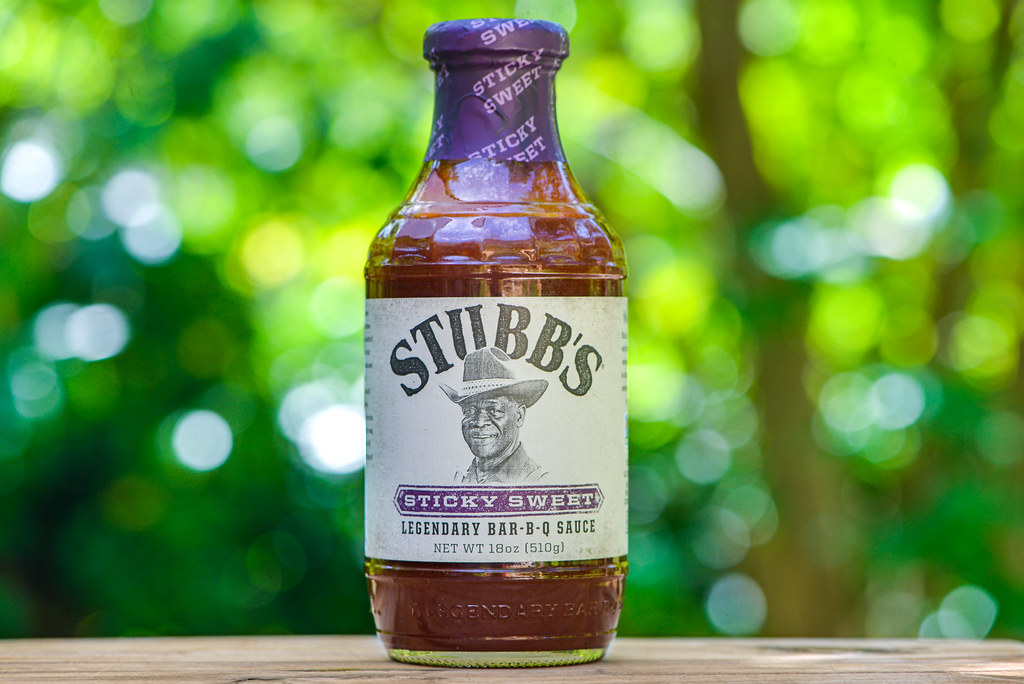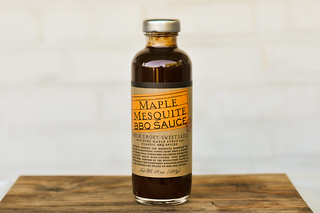Stubb's Sticky Sweet

Background
Stubb's origins trace back to 1968 when Christopher B. "Stubb" Stubblefield opened up his first spot in Lubbock, TX. Stubb used his cooking skills acquired while serving in the army during the Korean War to churn out barbecue that brought folks in, including musicians who began playing shows at the restaurant and leading it to be known for both food and music. Business reasons forced the closure of the Lubbock joint in 1980, but Stubb continued on to Austin, where he started selling his sauce at a blues joint called Antone's. He then got another restaurant going in 1986 and gained a lift in notoriety in 1991 following an appearance on David Letterman's show. With the extra attention that brought, Stubb moved to get his sauce in stores, which he did in 1992. Stubb passed away in 1995 while he was still working on opening another restaurant—his second had shuttered in the late 1980s—but the Stubb's name continued on with the opening of the Austin venue a year later and the sauce business continuing to flourish. In 2015, McCormick & Co purchased the Stubb's brand for $100 million and expanded it further to what it is now with 10 unique barbecue sauces alongside numerous rubs and marinades. Stubb was posthumously inducted into the Barbecue Hall of Fame in 2019, with his grandsons Rocky and Reggie being the ones able to accept the honor for him.
Aroma
An equal weighting between tangy tomato and sweet molasses defines the upfront aroma of this sauce. This very standard barbecue profile only becomes more so with the addition of garlicky, oniony, and smoky notes. It should be noted that while the name implies sweetness, and there's definitely a heavy sugar component, the overall aroma is not overly sweet.
Thickness & Texture
This glossy sauce has an opaque maroon hue, but even so, in bright light you can see a lot of small white, black, and orange spice specs. The sauce has a very smooth and syrupy consistency along with a thickness that's a notch below the medium mark. From a suspended spoon, the sauce falls in a large drip at first, then switches to a fast and uneven pour. Three or four slower drips then release prior to the sauce ceasing its flow, leaving a medium coating left adhered to the silverware.
Out of the Jar
A neutral start quickly transforms to a balanced mixture of tomato, sugar, and vinegar in the first taste. The sweetness then gains a little prominence when molasses enters the party, but gets thrown back into an equal partnership with vinegar as an increased tang soon follows. This harmonious union holds as the spices add the same complexity experienced in the aroma—garlic, onion, and smoke. The faintest touch of earthy peppers also hangs out in the background as the sweet tomato component turns slightly more acidic and the peppers release a very mild heat to form an aftertaste that pretty much spans the entire barbecue sauce flavor spectrum.
Slathered & Cooked
The sauce brushed onto the chicken in a medium and even layer that baked down in a patchy manner over indirect heat. When transferred directly over the hot coals, there was only light sauce loss, which allowed for pretty even caramelization with extra darkening occurring mainly where the chicken was touching the grates. As promised on the bottle, the sauce was indeed sticky, but it was not crazy sweet. Instead, there was a pleasant upfront molasses sweetness that had enough vinegar behind it to give the chicken a well balanced taste. Those elements, along with tomato, defined the first few bites, but the spices entered the party following that, allowing a more robust and nuanced flavor to persist from then on. Gone from the spices though was any real heat, leaving the peppers mainly to add earthy and smoky notes.
Put to Use
I almost didn't pick up this bottle because "Sticky Sweet" invokes a notion of a barbecue so sugar laden that it renders food almost candy like, which is not what attracts me in a barbecue sauce. I've been having good experiences with Stubb's sauces though, so I decided to give it a go and was glad I did because the sauce didn't match my perceptions from the name alone. Instead, I got that vinegar tartness that's a stamp of the Stubb's brand, but with more molasses sweetness than its brethren to give a pretty well balanced sweet and tangy taste. The underlaying spices kept with the barbecue norms, which at the same time made the sauce more complex, but also didn't make it something that's going to stand out in crowd. Pair that with good grilling qualities, and I found Stubb's Sticky Sweet a notch or two above average and something that most folks would be very happy to brush on all manner of backyard staples from ribs to burgers to chicken and beyond.




